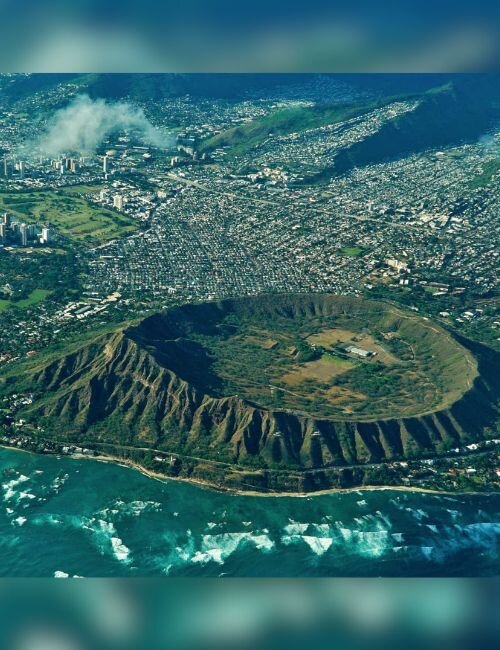Understanding HOA Fees and Their Impact on Property Sales
Grasping HOA fees is essential for buyers and sellers buying or selling property in Oahu, Hawaii. HOA fees are compulsory payments enforced by the association selected for the community. They are used for the maintenance of the common areas and amenities, as well as for other services used in common.
These fees are bound to affect the sale of the property by changing the cost of ownership of a house. There is also the aspect of budgeting, as the buyers will need to plan for either monthly or annual payments, which will, in turn, determine their mortgage.
Sellers must disclose all relevant fees during a real estate transaction to avoid issues at closing. Moreover, excessive HOA fees harm buying interest and can even complicate negotiations, as they increase the total cost of ownership.
Understanding these fees concerning community standards and amenities is essential for making wise decisions in the real estate market, especially for buyers in Oahu.
The Role of HOA Fees in Real Estate Transactions
As noted earlier, HOA fees are essential for both buyers and sellers involved in real estate deals in Oahu, Hawaii. Properties within communities and residential condominiums often come with HOA fees, which are incorporated into the purchasing cost.
Apart from pools and gymnasiums, these fees often exceed the upkeep of common areas, landscaping, and other local services integral to improving the quality of life within the given neighborhoods. Buyers must also account for any pending HOA fees during closing since they are often tied to the property, and the new owner becomes liable for them after the sale.
Sellers need to guarantee that all payments are up to date to avoid issues while closing the deal. Also, understanding the HOA’s financial standing is crucial; prospective buyers should pay close attention to the budget and reserve studies to evaluate the fund management and determine the likelihood of upcoming fee hikes.
Handling these factors minimizes the likelihood of complications, which, in turn, assists in expediting the transaction process and minimizing unanticipated financial responsibilities for new homeowners in Oahu.
Oahu Home Buyers can help guide you through the complexities of HOA fees in Oahu real estate transactions, ensuring dues are current, documents are reviewed, and potential issues are addressed early for a smoother, hassle-free closing.
Who Is Responsible for Paying HOA Fees at Closing?
Gaining insight into who is liable for HOA fees during real estate closing in Oahu, Hawaii, depends on the specifics set in the purchase agreement. Generally, the provision for HOA fees during closing remains a subject of agreement between parties to the sale, and may vary from contract to contract.
As is common in most scenarios, the seller must clear any HOA dues billed up to the closing date. Buyers are liable for HOA fees after the closing date on a prorated basis.
Both parties must thoroughly review the sales contract regarding allocating particular expenses. Also, considering some clauses regarding the special assessments or expected increments to the HOA fees is essential, as they would impact the overall financial obligations during the closing settlement.
An experienced real estate agent or lawyer who practices in Oahu and understands the local laws and regulations can advise on managing HOA fees during the property transaction.
Negotiating HOA Fees in a Home Sale Contract
When negotiating Homeowner’s Association (HOA) fees in conjunction with a house sale contract in Oahu, Hawaii, both parties need to consider how to allocate costs to avoid conflict. The parties need to check whether the HOA’s governing documents provide any specific terms for compliance regarding payments associated with the real estate transaction’s closing.
Of particular importance for buyers is to obtain a disclosure statement from the seller regarding any active HOA fees, special assessments, or increases. This will enable the buyer to make an informed decision. Sellers might negotiate to pay a portion or all of the HOA fees until closing to make their property more attractive to potential buyers.
Moreover, for both respondents, real estate agents and attorneys representing either side, it is a conventional practice within Oahu purchasing contracts to include clauses that outline who will pay the existing and incoming HOA fees. By paying close attention to these points, negotiations aid both parties in legally abiding by the Oahu and HOA customs on real estate transactions on the island.
How Hoa Fees Affect Home Buyers and Sellers
When buying or selling property in Oahu, Hawaii, understanding the impact of Homeowners Association (HOA) fees is crucial for both home buyers and sellers. For buyers, these fees can significantly influence the affordability of a home.
HOAs impose monthly dues as a recurring expense contributing to the overall budget, affecting mortgage computations and financial foresight. Maintenance, amenities, and community services provide the utmost value to the residents, keeping in mind their lifestyle and economic status, ensuring the residents are not restricted to the prevailing mortgage.
Ignoring the impact of HOA fees will ultimately affect the financial position a seller wishes to attain. The higher HOA fees can undoubtedly be a disadvantage when trying to market the property or obtain a potential buyer, as price negotiation will not only be common but also necessary to cover the additional fees.
Knowing the rules and regulations provided by the HOA is important at real estate closings to protect all parties involved and ensure seamless transactions. Sharing HOA obligations between selling and purchasing parties helps manage surprises in HOA community residences in Oahu and clarifies the anticipated costs of owning and selling property, including maintenance fees.
If you need help navigating how HOA fees affect your buying or selling decisions in Oahu, contact us today for expert guidance tailored to your unique situation.
Common Misconceptions About HOA Fee Responsibilities
Buyers in Oahu, Hawaii, seem to misbelieve in who pays HOA fees during real estate closings. A typical example is that the seller settles all HOA dues before closing.
Fees may vary depending on the purchase agreement. Another myth is that buyers automatically pay HOA assessments once they purchase the property.
However, it is important to explain which party, the buyer or the seller, takes responsibility for the special assessments the HOA has not paid before closing. Moreover, some purchasers believe that HOA transfer fees do not apply, not realizing that while these fees can be negotiated, they are typically paid by one or both sides as per the negotiations.
Knowledge of the intricacies of HOA fees and responsibilities mitigates disputes and facilitates smoother transactions when buying real estate in Oahu’s distinctive housing market.
State-specific Rules for Closing Costs and HOA Fees
It is important to remember the state laws regarding closing costs and HOA fees while searching for properties in Oahu, Hawaii. In Hawaii, closing costs include title insurance, escrow, and notary fees, among others.
In Oahu, buyers must pay prorated HOA fees. The HOA pays these fees for the maintenance and amenities of the residential communities, and they are usually negotiable as per the buyer-seller agreement.
In most deals, vendors pay off any HOA fees up to the closing date, and the buyers take over ongoing payment obligations after closing. Nonetheless, buyers must confirm whether other special assessments or costs will likely affect their post-closing budgeting strategies.
Knowing these details offers clarity and prevents unforeseen costs beyond the purchase price amid the shifting dynamics of Oahu’s real estate market.
Strategies for Reducing or Sharing HOA Fees During Closing
Recognizing ways to minimize or allocate Homeowners Association (HOA) fees may assist buyers and sellers during real estate transactions in Oahu, Hawaii. An actionable strategy would be to bargain with the seller to pay a portion of the HOA fees in the closing costs.
This is a viable option in a buyer’s market since sellers are willing to take any reasonable offer and close deals. Also, buyers can request prorated HOA fees, allowing them to pay only when they own the property within the current billing cycle.
Exploring any discounts or incentives offered by the HOA itself could also provide savings; some associations may have reduced rates for first-time homeowners or offer early payment discounts. Furthermore, engaging a knowledgeable real estate agent familiar with Oahu’s unique market conditions—or working with a cash for houses company in Pearl City and surrounding cities in Hawaii—can help identify properties with lower HOA fees or offering more amenities relative to their cost, maximizing value for money spent on these mandatory dues.
Legal Considerations for Paying Off Outstanding HOA Dues
While examining the legal side of outstanding HOA charges on properties during the closing of real estate transactions in Oahu, Hawaii, one must pay particular attention to the legal implications of existing HOA charges. HOA fees are part of property ownership responsibilities, and they affect the closing of the property transaction in one way or another.
In Oahu, buyers and sellers must pay attention to their duties and legal responsibilities because overlooking them can result in legal complications. As a rule of thumb, the seller must cover the HOA fees up to the closing date; however, this can change with negotiations and terms stipulated in the contract.
In Hawaii, real estate contracts must indicate the party responsible for the HOA fees to avoid complications in the deal. All parties involved in the transaction must engage with their respective real estate brokers or lawyers and thoroughly examine the documents to clarify any outstanding issues.
Not addressing the outstanding HOA dues could lead to the cost burden inadvertently transferring from the seller to the buyer. This shows how critical it is for every party involved in the transaction to understand their legal obligations under Hawaiian law when finalizing the agreement.
How to Calculate Prorated HOA Fees at Closing
The property deal in Oahu, Hawaii, requires special attention to HOA agreements because HOA prorated fees, which are HOA fees for the time a resident used a property, are significant at closing. Prorated HOA fees are applicable every quarter or every month, where a specific amount is charged for the entire duration, and a certain amount is divided by the number of days in that duration. Then, the HOA dues for the selling and buying parties are computed relative to the duration of ownership.
This approach protects both parties from falling into the traps of discrepancies or overpayment of HOA dues during the ownership period. Residents from Oahu also need to pay attention to local HOA rules because of unique prorating policies, such as extra charges for costs that could be assessed within a limited time.
A real estate agent or a lawyer based in Hawaii who focuses on real estate law will be invaluable in navigating the complex prorated fee calculations and closing in Hawaii. Proper communication on fee division resolves conflicts between the parties and guarantees the process will run smoothly. This approach also greatly minimizes conflict and enhances overall efficiency for all the stakeholders in the change of ownership.
The Importance of Reviewing the HOA Agreement Before Selling
If you are considering selling real estate in Oahu, Hawaii, you’ll need to navigate the HOA agreement to know how HOA fees would apply to you during the closing of the real estate deal. Notably, the dues owed on the HOA agreement include but are not limited to monthly dues, assessments that are out of the ordinary, and fees that are owed but not paid.
These are essential parts needed to articulate to potential buyers the details and rules associated with the transaction. A contract will highlight the total payable, non-payable amounts, and any applicable fees post-closing.
Overlooking such particulars can impose unforeseen monetary costs or financial responsibilities on prospective purchasers or the homeowners’ association. Through detailed scrutiny, this contract empowers the seller to mitigate risks by revealing the concerns about the fees tied to their property, simplifying the sale.
Tips for First-time Homebuyers on Handling HOA Costs
For first-time homebuyers, understanding Oahu, Hawaii, real estate closings requires understanding HOA fees. Many real estate properties, specifically those within community associations or condos, have HOA fees that cover maintenance and amenities.
Reviewing the property disclosure documents, all HOA dues, and assessments associated with the property are critically important. HOA fees are specific to community associations and condos, which often have them on a monthly, bi-annual, or annual basis.
It’s also wise to budget for future HOA costs by analyzing the association’s financial health and reserve funds. By doing so, you can anticipate potential increases in fees or special assessments.
Additionally, engaging a local real estate attorney familiar with Hawaiian property laws can ensure you’re fully aware of your financial responsibilities related to HOA fees upon purchase. Buyers—including cash home buyers in Oahu and other Hawaii cities—should take the time to understand these financial obligations before committing to a deal, as they directly impact long-term affordability.
Understanding the Financial Health of an HOA Before Buying a Property
Knowing the current standing of the Homeowners Association (HOA) finances is vital before acquiring any property in Oahu, Hawaii. An HOA’s solvency directly affects the HOA dues apportioned to real estate transactions during the closing period.
Reviewing an HOA’s financial documents is a must, and prospective buyers are encouraged to analyze the budget alongside the financial statements, especially the reserves. The HOA’s capabilities to self-insure against unplanned repairs and maintenance are often reflected in the funding reserves, translating to no special assessments that would increase a buyer’s financial obligation post-closing.
Understanding any debts or current liens against the HOA is critical to mitigating liabilities that may increase homeowners’ monthly charges. Moreover, knowing the regularity of fee escalations and whether the rate is due to inflation or unplanned costs provides a reasonable estimate of the future fee structure you will likely encounter.
Potential buyers should also examine any ongoing litigation involving the HOA that could affect its finances and thus impact fee responsibilities after closing on a property in Oahu.
Are HOA Dues Paid at Closing?
When purchasing a property in Oahu, Hawaii, understanding the responsibility for HOA fees during real estate closings is crucial. Typically, HOA dues are prorated and addressed at closing to ensure a smooth ownership transition.
The buyer and seller must negotiate who pays the remaining balance of the HOA fees for the current billing cycle. In many cases, sellers are responsible for settling any outstanding dues up to the closing date, while buyers assume responsibility thereafter.
This proration process ensures that homeowners’ association (HOA) dues are fairly allocated between parties. Buyers and sellers must review the settlement statement carefully to confirm that all HOA fees have been adequately accounted for.
Engaging with a knowledgeable real estate agent or attorney familiar with Oahu’s specific regulations can clarify how these fees should be handled during closing, preventing potential disputes or financial surprises. Understanding this aspect of real estate transactions ensures clear communication and a seamless transfer of property ownership in Oahu’s competitive market.
Who Pays Closing Costs in Hawaii?
Understanding who pays the closing costs is crucial to real estate transactions in Oahu, Hawaii. Typically, closing costs in Hawaii are negotiated between the buyer and the seller and can include various fees, such as title insurance, escrow fees, and lender charges.
Homeowners Association (HOA) fees are also essential during the closing process. In most cases, sellers are responsible for prorated HOA dues until the closing date, while buyers assume responsibility for HOA fees moving forward.
Reviewing the purchase contract to determine the specific allocations of these costs is essential. Buyers should be prepared for potential expenses like loan origination fees and appraisal costs, while sellers might cover transfer taxes or provide concessions to offset other closing expenses.
Consulting with a knowledgeable real estate agent or attorney familiar with Oahu’s market dynamics can help clarify responsibility for these costs and ensure a smooth transaction process.
What Part of Closing Costs Does the Buyer Pay?
Understanding the allocation of closing costs is crucial when purchasing a property in Oahu, Hawaii, especially regarding responsibility for HOA fees. Typically, buyers are responsible for some closing costs during real estate closings.
These may include loan origination fees, appraisal fees, title insurance fees, and recording fees. However, the responsibility for Homeowners Association (HOA) fees can vary.
The buyer is often expected to pay prorated HOA dues from the closing date onwards. If the seller has prepaid any HOA fees beyond the closing date, the buyer reimburses them accordingly.
Buyers should carefully review their closing disclosure documents to understand their specific financial obligations related to HOA fees during the real estate transaction. Consulting with a real estate agent familiar with properties in Oahu can clarify how these costs are typically divided and ensure a smooth transition of responsibility for HOA dues at closing.
Do you want to sell your home? If you want to avoid expensive repairs or a quick sale, this is the page for you. This business is here to help. We make fair cash offers, care for all the details, and simplify the process. Do you want to sell or have a question? For an offer that doesn’t bind you, call us at (808) 333-3677. Start right away!
| HOMEOWNERS ASSOCIATIONS | PROPERTY OWNERS ASSOCIATION | TITLE COMPANY | TITLE COMPANIES | LENDING | HOUSING FINANCE |
| HOMEBUYING | INSURANCE COMPANY | PREMIUMS | EMAILED | ||
| INBOX | BROKER | REAL ESTATE BROKERS | REALTORS | TERMITE | INSPECTION |
| LENDERS | CREDITORS | HOME APPRAISAL | HOMEOWNERS INSURANCE | HOMEOWNER’S INSURANCE | PROPERTY TAXES |
| HOME INSPECTION | CREDIT REPORT | INTEREST | CREDIT | COMPANY | ATTORNEY FEES |
| HOMEOWNERSHIP | HONOLULU | MLS | INSPECTOR | EARNEST MONEY | DISCOUNT POINTS |
| DEED | TITLE DEEDS | COPYRIGHT | CONVEYANCES | BANK | ALL RIGHTS RESERVED |
| IN HAWAII THE | THE COST OF | ALL RIGHTS RESERVED |
Helpful Oahu Blog Articles
- Fun Facts About Oahu, Hawaii
- Selling a Home With Reversed Mortgage in Oahu, HI
- Real Estate Attorney Fees For Selling Your Home In Oahu, HI
- Understanding FSBO Costs For Selling Your Home In Oahu, HI
- Sell A Condemned House In Oahu, HI
- How To Switch Real Estate Agents In Oahu, HI
- Selling A Hoarder House In Oahu’s Real Estate Market
- Responsibility For HOA Fees During Real Estate Closings In Oahu, HI
- Can You Back Out Of A Real Estate Contract In Oahu, HI

![Who is Responsible for Hoa Fees at Closing In [market_city]](https://image-cdn.carrot.com/uploads/sites/1287/2025/07/Who-is-Responsible-for-Hoa-Fees-at-Closing.png)



